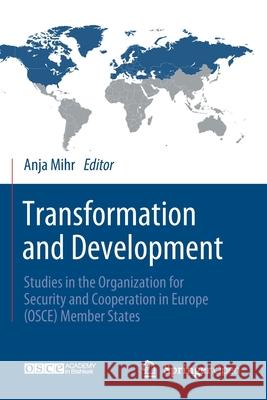Transformation and Development: Studies in the Organization for Security and Cooperation in Europe (Osce) Member States » książka
topmenu
Transformation and Development: Studies in the Organization for Security and Cooperation in Europe (Osce) Member States
ISBN-13: 9783030427771 / Angielski / Miękka / 2020 / 154 str.
Transformation and Development: Studies in the Organization for Security and Cooperation in Europe (Osce) Member States
ISBN-13: 9783030427771 / Angielski / Miękka / 2020 / 154 str.
cena 342,14
(netto: 325,85 VAT: 5%)
Najniższa cena z 30 dni: 327,68
(netto: 325,85 VAT: 5%)
Najniższa cena z 30 dni: 327,68
Termin realizacji zamówienia:
ok. 16-18 dni roboczych.
ok. 16-18 dni roboczych.
Darmowa dostawa!
Kategorie:
Kategorie BISAC:
Wydawca:
Springer
Język:
Angielski
ISBN-13:
9783030427771
Rok wydania:
2020
Wydanie:
2020
Ilość stron:
154
Waga:
0.23 kg
Wymiary:
23.39 x 15.6 x 0.89
Oprawa:
Miękka
Wolumenów:
01
Dodatkowe informacje:
Wydanie ilustrowane











